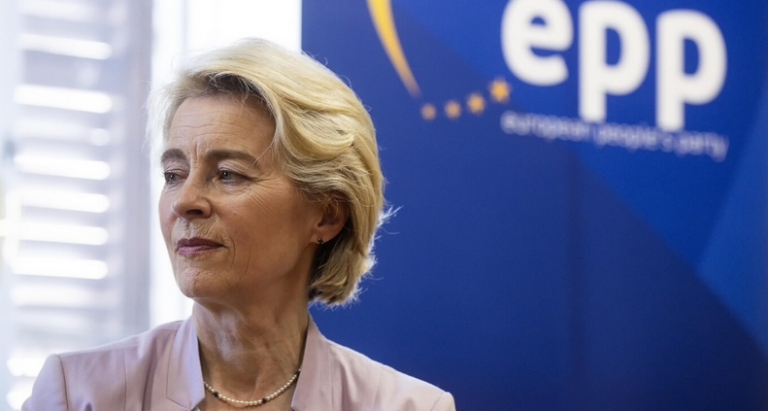Ursula von der Leyen will face significant challenges in retaining her position as President of the European Commission after the upcoming European elections. According to an analysis by Politico, securing the necessary 361 votes in the European Parliament will be difficult. While she was elected in 2019 with a slim majority of nine votes, this time she faces a more hostile Parliament and the real possibility of failing to obtain the required majority.
Von der Leyen must overcome two major hurdles: gaining the consensus of the majority of the EU’s 27 member states, and securing at least 361 votes from the 720 MEPs in a secret ballot. Although the European Council appears more favorable, with 12 of its 27 members from the European People’s Party (EPP) likely to support her, there is a risk of opposition from key figures like French President Emmanuel Macron and German Chancellor Olaf Scholz. Polls suggest the EPP will remain a leading force with 170 seats, but von der Leyen will need to negotiate with the Socialists and Liberals to form a majority.
Support from the EPP, Socialists and Democrats, and the liberal “Renew Europe” could give her around 390 votes. However, political analysts warn of possible defections exceeding 10% within these groups, which could drop her support to 351 votes. Additionally, von der Leyen cannot rely on previous support from Hungary’s Fidesz party and Poland’s Law and Justice party due to tensions over rule of law issues. Socialists and Liberals are also hesitant to support her, fearing a potential alliance with right-wing Italian Prime Minister Giorgia Meloni and accusing von der Leyen of undermining the EU’s green agenda.
The support of French MEPs from the Republican party for Ursula von der Leyen’s re-election is uncertain, prompting her to pressure Donald Tusk’s party in Poland and the People’s Party in Spain. A senior EPP official emphasized that von der Leyen must actively secure support from Spain and Poland, indicating a need for persistent and strategic campaigning.
Ursula von der Leyen is courting Giorgia Meloni’s support, which is crucial both in the European Council and the European Parliament. However, aligning with Meloni’s Brothers of Italy could cost von der Leyen votes from the Socialists and Liberals. While Meloni’s endorsement is important for European Council approval, her party’s limited seats in the new European Parliament and potential backlash from German Socialists make this a risky strategy.
Von der Leyen’s potential alliance with Meloni’s ECR has led to resistance from the Socialists and Democrats, Liberals, and Greens, who oppose her re-election if it involves far-right factions. If she abandons the ECR agreement, she needs the Greens’ support in addition to the Socialists and Liberals, which would secure 432 votes. However, gaining Green support is uncertain and would require von der Leyen to commit to their demands, such as continuing the Green Deal and upholding the rule of law. These commitments could alienate Conservative support, highlighting the delicate balance von der Leyen must maintain to secure her re-election.
Ask me anything
Explore related questions





